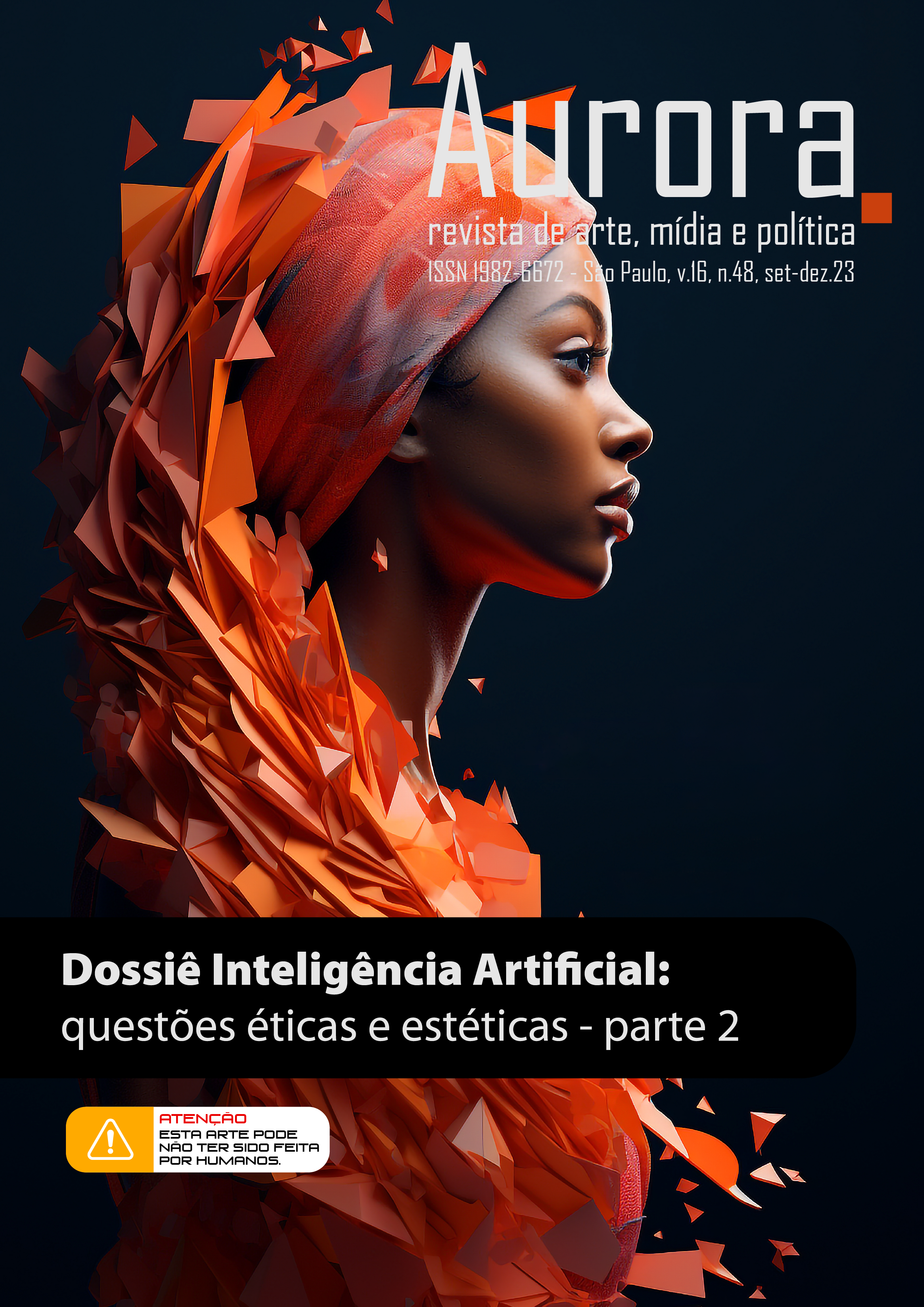The Manifesto of Things
notes for liberalizing suppressed voices
DOI:
https://doi.org/10.23925/1982-6672.2023v16i48p5-20Keywords:
Artificial intelligence, Technical Object, Metaethics, DesignAbstract
When technology goes beyond the limits of visible matter, and things want to say what they think, what would those interacting with them hear? What arguments and stories will come in your favor? The Manifesto of Things announces its annoyance about the lack of sovereignty of things over their destiny, as well as the impacts that they may cause and that escape their agency. It is an ethical-political-philosophical-social-and-historical critique—the first step towards recognizing their rights and citizenship.
References
AGAMBEN, Giorgio. Homo Sacer. O poder soberano e a vida nua. Tr. Henrique Burigo. Belo Horizonte: Editora UFMG, 2007, p. 9-10.
BARTHES, Roland. Mitologias. Siglo xxi, 1999.
ELSENAAR, Arthur; SCHA, Remko. Electric body manipulation as performance art: A historical perspective. Leonardo music journal, p. 17-28, 2002.
ENGELS, Friedrich. A origem da família, do Estado e da propriedade privada. Civilização Brasileira, 1984.
GUROFF, Margaret. The Mechanical Horse: How the Bicycle Reshaped American Life. University of Texas Press, 2016.
HARAWAY, Donna. Simians, cyborgs, and women: The reinvention of nature. Routledge, 1991.
HARMAN, Graham. Object-oriented ontology: A new theory of everything. Penguin UK, 2018.
KRENAK, Ailton. Futuro Ancestral. São Paulo: Companhia das Letras. 2022.
LATOUR, Bruno. Um prometeu cauteloso. Alguns passos rumo a uma filosofia do design (com especial atenção a Peter Slotedijk). Agitprop: revista brasileira de design, São Paulo, v. 6, n. 58, 2014.
NAS, Elen. Arte Eletrônica: Elo Perdido. E-Book Kindle.2020.
NAS, Elen. Bioethics of NonPresence: Body, Philosophy and Machines. E-Book Kindle. 2021.
ORTNER, Sherry. Está a mulher para o homem assim como a natureza para a cultura? In: Rosaldo, M.Z., Lamphere, L. A Mulher, a cultura e a sociedade. Rio de Janeiro, Paz e Terra. 1979.
SAYRE-MCCORD, Geoff, Metaethics. In: ZALTA, E., Nodelman, U. The Stanford Encyclopedia of Philosophy. 2023. Disponível em: https://plato.stanford.edu/archives/spr2023/entries/metaethics
Segato, Rita Laura. Os percursos do gênero na antropologia e para além dela. Sociedade e Estado, v. 12, n. 02, p. 235-262, 1997.
SIMONDON, Gilbert. Du mode d'existence des objets techniques. Paris: Editions Aubier. 1969.
VERBEEK, Peter-Paul. COVER STORY beyond interaction: a short introduction to mediation theory. interactions, v. 22, n. 3, p. 26-31, 2015.
Downloads
Published
How to Cite
Issue
Section
License
Copyright (c) 2023 Aurora. Journal of Art, Media and Politics.

This work is licensed under a Creative Commons Attribution 4.0 International License.










